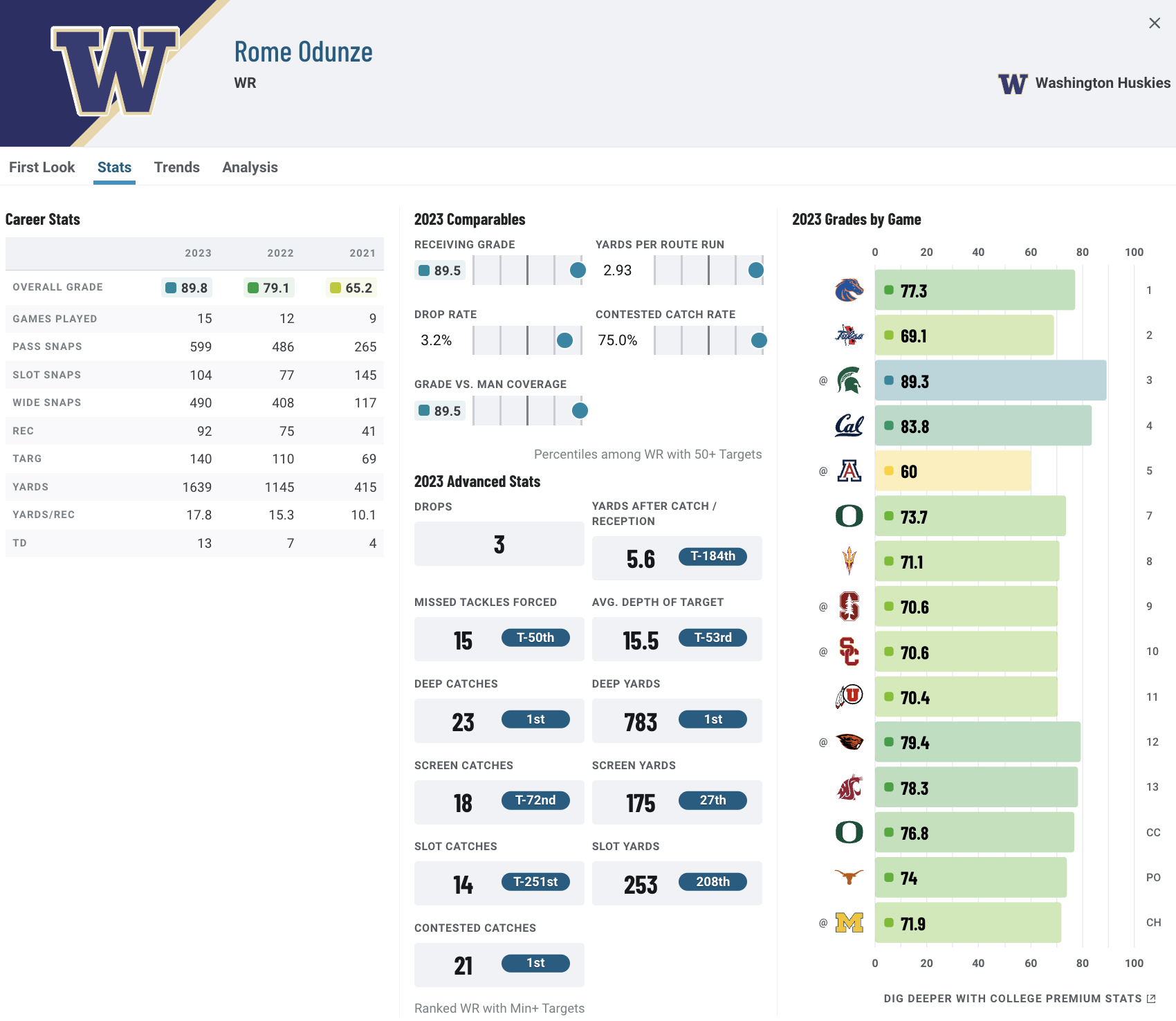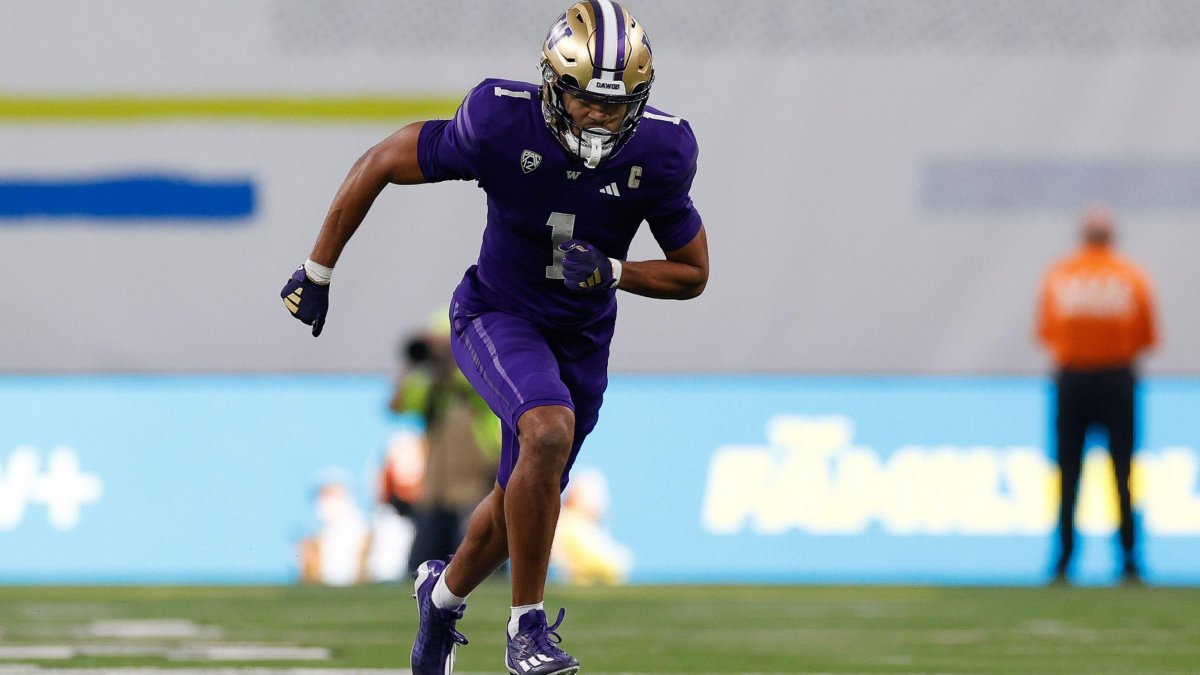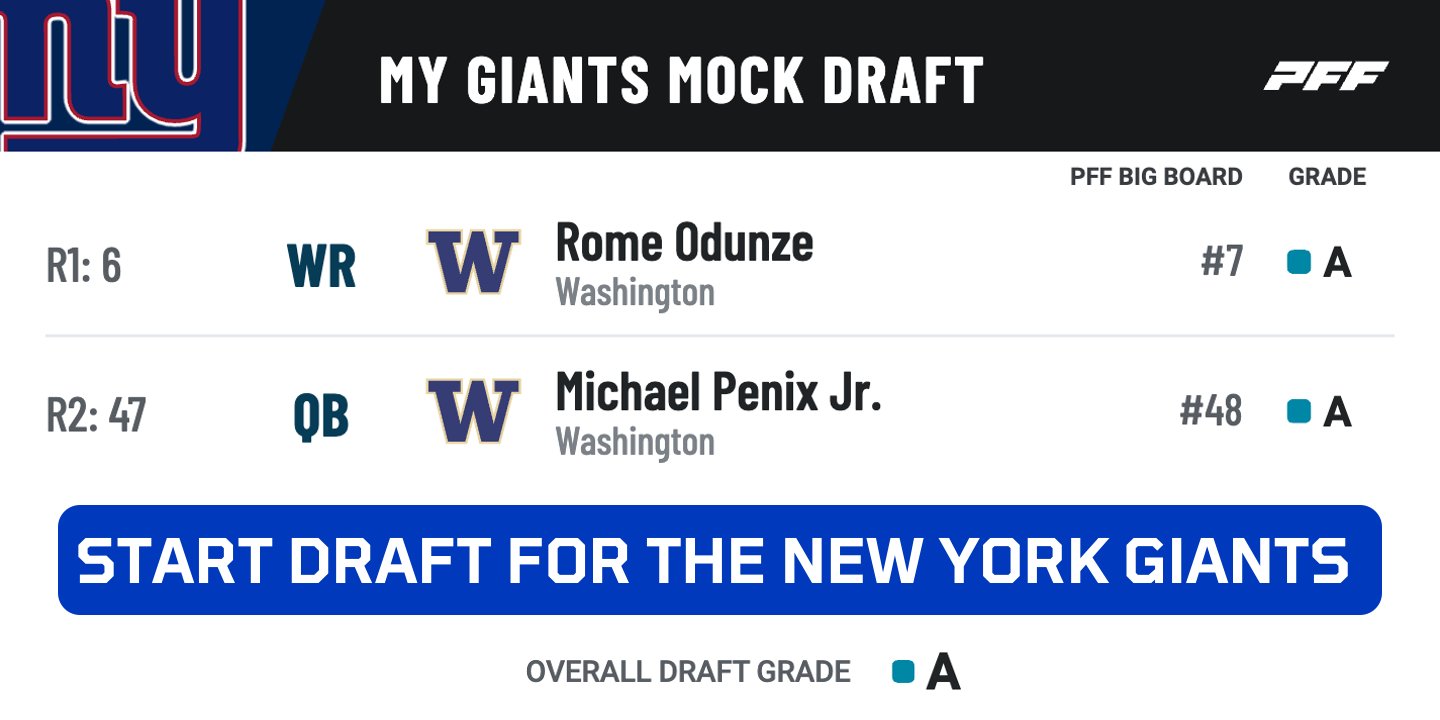The 2024 NFL Draft is fast approaching. The PFF big board is live, mock draft season is in full swing and the 2024 NFL Scouting Combine has wrapped up.
This year's crop of wide receiver prospects showcases some potential NFL stars, with Ohio State star Marvin Harrison Jr. emerging as the standout. Behind Harrison, we have LSU’s Malik Nabers and Washington’s Rome Odunze, who are top-10 prospects in this class.
It’s a good time for NFL teams to need receiver help.
Let's look at Washington‘s Rome Odunze, the Biletnikoff finalist who led the nation in receiving yards (1,639) last season.
Click here for more draft tools:
2024 Mock Draft Simulator | 2024 Big Board | 2024 Draft Guide
2024 Player Profiles | 2024 Mock Drafts | NCAA Premium Stats
SCOUTING SUMMARY
Odunze, a former four-star recruit, was named the Nevada Gatorade Player of the Year in 2019. In addition to his football success, he won a state title in the 200-meter dash. His Washington tape is that of an alluring receiver prospect, one whose build and ability do not come around often.
He checks the boxes for height, weight and arm length to play all three receiver positions. He does the same from an athletic standpoint. His route running is smooth for a player of his size, and his acceleration is equally impressive. He became a more reliable pass-catcher through contact in 2023 and is comfortable hauling in throws away from his body.

WINS ABOVE AVERAGE
WAA represents the number of wins a player is worth over an average college football player and is a metric that evaluators can utilize to assess performance. It combines how well a player performed in each facet of play (using PFF grades) and how valuable each facet is to winning football games. The result is a first-of-its-kind metric that allows for cross-positional valuation and predicts future value at the player and team levels.
HOW ODUNZE RANKS IN THE STABLE METRICS
Receiving grades are relatively stable from year to year, but there is always some level of dependency on quarterback play when evaluating receivers. Isolating receivers against single coverage versus zone is informative, as it shows how much was earned in one-on-one situations compared to more scheme-driven production. Advanced data shows how open receivers are on their targeted routes, and separation percentage is one way to isolate the receiver away from his quarterback.
As far as advanced stats go, yards per route run (YPRR) is one of the best measures of a wide receiver’s production, as it takes into account how well he takes advantage of his opportunities.
Average depth of target (aDOT) and yards after the catch per reception are informative about a receiver’s usage pattern, and his after-the-catch expectations are directly affected by how far down the field he is targeted. Both numbers are as much about style as they are about production.
Compared to other players with PFF college data, Odunze’s metrics in the most predictive of data subsets measure up pretty well.
The Washington product improved every year of his career, and there’s no reason to think that trend won’t continue in the NFL. Last year, he hauled in 75% of his contested targets, making him one of the nation's most reliable contested catch receivers.
Over the last two seasons, Odunze led college football in deep targets (72) and receiving yards (1,147). After running a 4.45-second 40-yard dash at the NFL combine, he’s shown he can take the top off a defense at any point.
ODUNZE’S PROJECTIONS
Here are Odunze’s rookie-year projections for yards per reception and completion percentage in an offense that likes to push the ball downfield.
Let’s look at how Odunze does in an offense that relies on a quick, underneath passing game.
BOTTOM LINE FROM PFF's 2024 NFL DRAFT GUIDE
In an offense filled with future NFL players at the skill positions, Odunze was the best of the bunch. If he weren't in a class with Marvin Harrison Jr. and Malik Nabers, we would be talking about him as an easy WR1 and a player worthy of a top-10 pick, although the latter is still true for 2024.





 © 2024 PFF - all rights reserved.
© 2024 PFF - all rights reserved.